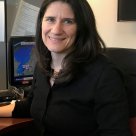Quebec’s health ministry has released the results of its studies surrounding the transmission of the novel coronavirus as it relates to air ventilation in schools.

The aim of the study was to take stock of current scientific knowledge to better inform decision-making from authorities in a bid to prevent the spread of COVID-19 in schools.
The report comes as students get set to return to school after the holiday break, while the province struggles to bring down its daily COVID-19 caseload and related hospitalizations.
During a press conference Friday, in company of Education Minister Jean-François Roberge, Quebec Public Health’s strategic medical adviser Dr. Richard Massé recognized that the virus is transmitted by aerosols, mainly near or within two metres of an infected person.
The study also concluded that the risk of transmission increases in confined, inadequately ventilated spaces, with high occupant density and prolonged exposure over 15 minutes.
As such, public health is issuing several recommendations, including compliance with air quality requirements, annual inspections to monitor air quality measurements, quickly implementing corrective measures when problems are detected and ensuring there’s a follow up.
Air quality tests carried out by the education ministry in 1,369 classrooms across 330 schools showed average levels of carbon dioxide of 804 parts per million (ppm).
“In Quebec, the health and safety regulations tell us that in the workplace we can tolerate rates up to 5,000 ppm of carbon dioxide,” Roberge said, adding that in school environments the standard is stricter.
- Invasive strep: ‘Don’t wait’ to seek care, N.S. woman warns on long road to recovery
- Canadian man dies during Texas Ironman event. His widow wants answers as to why
- ‘Super lice’ are becoming more resistant to chemical shampoos. What to use instead
- Solar eclipse eye damage: More than 160 cases reported in Ontario, Quebec
“We are aiming for 1,000 ppm.”
Despite “encouraging results,” Roberge said the situation in Quebec classrooms isn’t perfect, with around three per cent of classrooms tested showing problems.
Roberge, however, said corrective measures have been or will be carried out shortly to ensure proper ventilation and air quality where needed.
In Quebec, roughly two-thirds of the province’s 3,300 schools rely on natural ventilation, as opposed to mechanical ventilation.
To ensure adequate air circulation, public health is now recommending that windows in classrooms be opened twice a day for at least 10 to 15 minutes.
Windows and doors should also be left open for 30 minutes before and after classes.
Public health, however, recommends against using portable air purifiers.
Massé argued it hasn’t been clearly demonstrated that filtration devices are sufficient to limit transmission.
According to Massé, air purifiers protect against droplets when they are placed close to a person that is infected, and are less efficient over a larger distance.
“In a class where you don’t know who could be infected, just putting one device in one spot, it’s kind of impossible to be sure that it’s going to be really efficient in any way,” he warned.
“If they are not really well used or well placed, they could by themselves generate droplets in suspension and carry them to other persons.”

Whether or not to install air purifiers in classrooms has been a big debate in Quebec. Both the English Montreal and Lester B. Pearson school boards have spent millions to purchase them.
Public health says they absolutely need to be installed by professionals.
The LBPSB said it made its decision to purchase Hepa air purifiers based on scientific studies conducted by universities like Harvard and Yale.
The EMSB is also standing by its decision.
“We did our due diligence,” said EMSB chair Joe Ortona in a written statement.
“We are confident that the type of air purifiers purchased, their specifications — including low noise — and their permanent installation in classrooms, respond to the concerns raised by Dr. Richard Massé.”
The school board says it is going ahead with the installation of portable air ventilators in 30 of its 55 buildings, that are without mechanical ventilation systems.
Ortona said the installation process is a month ahead of schedule and should be completed by the end of January.
Massé said he’s concerned purifiers will create a false sense of security and that teachers and students might forget to follow other public health guidelines.
“But clearly the other measures are the ones that are the most effective, the most important to protect (against) transmission,” he said.
Ortona said the ESMB will do its part.
“We will ensure that the other mitigation measures in classrooms, such as the wearing of face-coverings and natural ventilation where feasible, will be maintained in order to reduce the risk of transmission of COVID-19 as much as possible,” he said.
A McGill University professor, meanwhile, says the issue of ventilation has been “clear oversight” on the part of the government.
“We knew since summer that aerosol transmission is happening,” said Jörg Hermann Fritz, associate professor of microbiology and immunology.
He says not much has been done to upgrade old systems or put limits on how long people should stay in the same place.
“I’m afraid that even with all these measurements, with the curfew, with the harsh lockdown, we will not be able to get the numbers down as much as everyone would hope for,” he said.










Comments